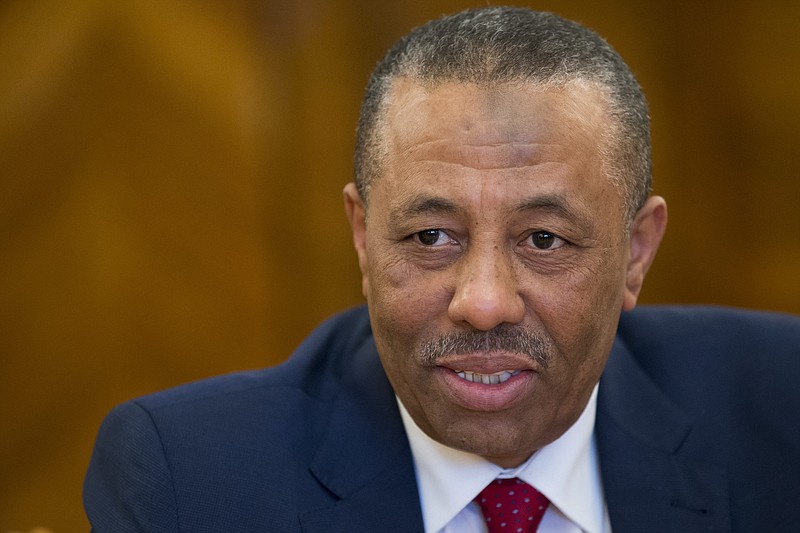BENGHAZI, Libya (AP) - Gunmen tried to assassinate Libya's internationally recognized prime minister on his way to the airport in the eastern city of Tobruk on Tuesday, a spokesman for his government said.
Arish Said, head of the government's media department, said that Prime Minister Abdullah al-Thinni's motorcade was attacked and one of his guards was lightly wounded but that there were no fatalities.
"They managed to escape," Said said.
Prior to the attack, he said armed men who had been protesting outside a session of the Tobruk government's House of Representatives tried to storm the building, firing shots into the air and demanding al-Thinni be removed from office.
They were "threatening to kill the prime minister and force the House to sack him," Said said. He identified the men as being funded by "corrupted political financiers" linked to powerful Tobruk tribal leaders, without elaborating.
The session was postponed until next week before the attempted assassination.
Nearly four years after the ouster of longtime dictator Moammar Gadhafi, Libya is consumed by chaos. The country split is between an elected parliament and weak government, and a rival government and parliament in Tripoli set up by the Islamist-linked militias that took control the capital, forcing the government to relocate to the far eastern cities of Tobruk and Bayda.
The turmoil has enabled the rise of an active Islamic State branch, which now controls at least two cities along the country's coastline.
Earlier Tuesday, Human Rights Watch said civilians, including foreign nationals, are trapped in several neighborhoods in Libya's embattled eastern city of Benghazi, urging fighters there to let them depart without conditions.
In a statement, the U.S.-based group says militias and army units have surrounded the downtown areas, where several hundred people are reportedly trapped and not allowed to leave. Some of those trapped were Syrians, Palestinians, and Asian and African nationals.
Middle East and North Africa director Sarah Leah Whitson said that all forces involved must take all feasible precautions to minimize harm to civilians and civilian property, and that the Libyan army and militias must allow civilians safe passage and facilitate access to badly needed aid.
